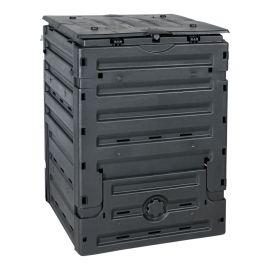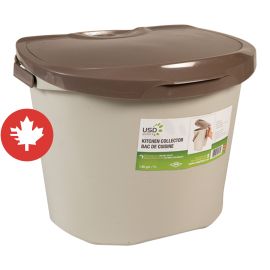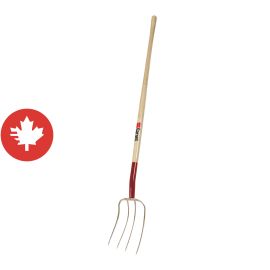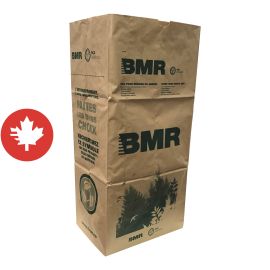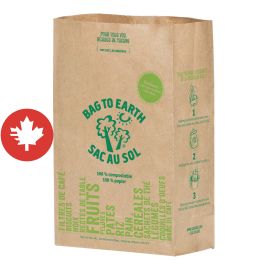Over the past few years, composting has become a widely adopted environmental practice. Compost is often called the “black gold” of gardeners, as the decomposed waste becomes a very fertile and hummus-rich soil that promotes plant cultivation. Some municipalities offer organic material collection, which requires less maintenance. Simply throw out your organic waste and leave your bin outside for collection once a week. If this option is not available in your area, you can make your own compost in a snap. Here are our tips for success.
A PRACTICE TO REDUCE POLLUTION
Composting organic waste is a great way to reduce pollution caused by the decomposition of compostable material.
Since approximately 40% of our waste is compostable, household composting is a concrete way to protect the environment. It allows composted materials to be diverted from landfills and incinerators, which produce greenhouse gases.
Compost also contributes to a healthy ecology by feeding worms and microorganisms in the soil, which in turn transform the compost into a plant-friendly food. Compost also retains water and mineral elements in sandy soils and improves the structure of clay soil.
Finally, it acts as a barrier against plant diseases and pests, helping to ensure healthy and vigorous plants.
Compost can be used everywhere. Give your garden, flower boxes, flower beds, and even your lawn a boost!
COMPOST BIN OR MOUND?
There are two composting methods: by mound or by bin.
To create a compost mound, simply stack your waste in a corner of your yard, making sure to turn the pile often to activate fermentation. Since a pile of compost in your yard can be an eyesore, we suggest that you hide it behind a shed or place it far from your deck, if possible.
If you choose a composter, made of wood or plastic, it can easily be installed on a deck or in the garden. Here are some criteria to help you choose the right one for you:
- The composter must have a lid to protect it from rain and snow, and to properly control the humidity.
- There should be holes or openings in various locations to promote airflow.
- And finally, it must have a hatch (usually beneath the composter) so that you can collect your precious compost.
WHAT CAN YOU COMPOST?
Compost is made from organic waste. Compostable waste falls into two categories: “green” (nitrogen rich) and “brown” (carbon rich).
Green materials
- Fruits and vegetables and their peels
- Bread, pasta, grains, and legumes
- Coffee grounds (including paper filters)
- Tea bags, caffeinated and herbal (staple removed)
- Green garden residue (grass clippings, wilted flowers)
- Animal fur and hair
Brown materials
- Dead leaves and straw
- Thinly cut branches and twigs
- Wood chips and sawdust
- Conifer needles
- Newspaper (black ink only)
- Eggshells
Materials to avoid
- Meat and bones
- Fish, shellfish, and seashells
- Dairy products
- Oils and fats
- Plants that are diseased or gone to seed, or with rhizomes
- Plants treated with pesticides
- Rhubarb leaves
- Barbecue charcoal
- Wood ash
- Vacuum bag contents and dryer lint
- Excrement and disposable diapers
- Cat litter
- Cigarette butts
For successful composting, three rules must be observed:
1. Turn the compost regularly, about twice a week (especially if you have a compost mound).
2. Keep it well ventilated so microorganisms can thrive.
3. Keep it moist (during times of drought, you should water it occasionally).
If you see ants in your compost, it is either too dry or contains too much brown material. Add more green material or water it a little. However, do not overwater, as the compost will lack oxygen and start to smell like rot. Compost that has adequate moisture should form a ball when pressed into your hand.
Organic waste typically takes 12 months to completely decompose, but this can vary. Properly decomposed compost is brown or black and free of offensive odours. It smells of fresh earth.
SOME PRODUCTS AVAILABLE AT BMR
Ready to get started? You will see your garbage levels decrease dramatically. There are a few products available at your local BMR dealer that will allow you to dispose of your organic materials.
